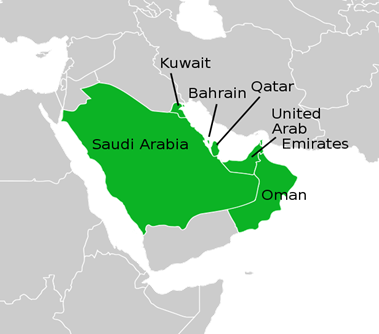Yemen and the GCC: Unraveling the Complex Tapestry of Exclusion
Introduction:
Yemen, a nation perched at the crossroads of the Arabian Peninsula, stands as a distinctive entity in the tumultuous landscape of Middle Eastern geopolitics. Despite its geographic proximity and historical ties, Yemen remains conspicuously absent from the Gulf Cooperation Council (GCC), a regional powerhouse comprising Bahrain, Kuwait, Oman, Qatar, Saudi Arabia, and the United Arab Emirates. Unraveling the intricate web of reasons behind Yemen's exclusion sheds light on a complex interplay of historical, political, and economic factors.
1. **Geography and Distances:**
Yemen's exclusion from the GCC is, in part, a geographical consequence. Nestled on the southern tip of the Arabian Peninsula, Yemen finds itself at a distance from the eastern flank where the GCC nations are concentrated. The vast expanse and rugged terrain have historically posed challenges to seamless integration, fostering a sense of regional isolation.
2. **Political Turmoil and Civil Unrest:**
The political landscape of Yemen has been marred by a series of upheavals, with the most recent being the civil war that erupted in 2015. The ongoing conflicts and internal strife have created an environment of instability, making it difficult for Yemen to align with the unified political front maintained by the GCC. The bloc's member states often seek solidarity in their regional policies, and Yemen's internal discord has been a barrier to such alignment.
3. **Divergent Political Agendas:**
Yemen's historical and political trajectory has not always mirrored that of its neighboring GCC countries. The political alignments and priorities of the Gulf nations, shaped by their unique regional considerations, have not seamlessly converged with Yemen's own interests. This divergence in political agendas has further widened the gap between Yemen and the GCC.
4. **Economic Disparities and Challenges:**
Economically, Yemen faces a different reality compared to the oil-rich GCC nations. While the Gulf countries have thrived on their oil wealth, Yemen has grappled with economic challenges, exacerbated by the protracted conflicts. Economic disparities and the absence of a common economic foundation have hindered Yemen's integration into the GCC's economic union.
Conclusion:
The absence of Yemen from the GCC is a multifaceted tale, woven with threads of geography, politics, and economics. While the GCC stands as a formidable force in the Middle East, Yemen's exclusion underscores the intricate nature of regional dynamics. As geopolitical landscapes continue to evolve, the possibility of Yemen's integration into the GCC remains an open question one that depends on the resolution of internal conflicts, alignment of political interests, and the bridging of economic disparities. Only time will reveal whether the intricate tapestry of Yemen's relationship with the GCC will see new threads woven, creating a more interconnected regional narrative.






.jpg)



0 Comments